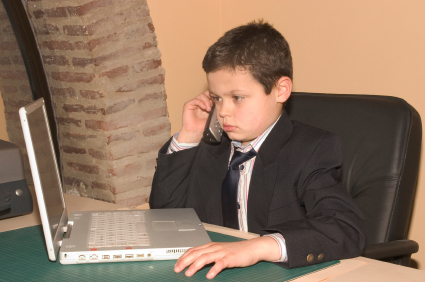publication date: Oct 4, 2007
|
author/source: Anne Coates
 Parents
Parents fearing for their
children’s safety often keep them
indoors rather than
allow them to
play in the street or park
unsupervised. However children can be even more
vulnerable at home when using the
computer and logging on to the
Internet.
It’s a
terrifying fact of life that
paedophiles are still able to
contact and groom children
online and a government report
revealed that
one in four children has
potentially put him or herself
at risk by secretly meeting a
stranger contacted online. This is a threefold
increase on a similar
study carried out
two years ago.
Parents
need to be more
proactive in protecting their
children while using the I
nternet. Not understanding the
technology or jargon is no longer an
excuse as parents can visit the
specially designated page on the
Child Exploitation and Online Protection website at www.thinkuknow.co.uk/parents.
This
police website gives
clear and up to date
guidance on Internet use and
terminology plus gives examples of
warning signs that parents should
watch out for if they have any
suspicions that their child is being
targeted or groomed
online.
The
site has areas for
children and young users
advising them on how to
keep safe and stay in control and
still have
fun. Any s
uspicious activity can be
reported – by parents or youngsters - at the
click of a button.
This is an
excellent site and one you should
introduce your offspring to.
Looking at the various areas
together is a good
starting point for discussing
Internet safety.
Parental controls
Keeping the computer in a
family room is an important way of
monitoring what is
going on but you can’t be looking over a
child’s shoulder all the time so it’s
wise to install
parental control software.
For an
overview of what is available go to
BroadbandChoices.co.uk - the second biggest broadband
comparison service in the UK which doesn’t just
focus on price but
total package value.
Some ISPs like AOL and BT offer
parental controls as part of their
service, while other
users can get them with their
antivirus and security software.
Parental controls
allow you to
block certain sites and
keywords, apply different
settings for different
age groups and monitor your child’s
online activity. You can also use the
Messenger Plus! program to keep a log of
conversations they might be having using Instant
Messenger.
Downloads
What your child is
downloading from the Internet – however innocent – may affect your
monthly usage
allowance. In which case use a
Download Monitor - such as the one
available at BroadbandChoices.co.uk - to keep an
eye on downloads and
set alarms to alert you when you near your
limit.
 Parents fearing for their children’s safety often keep them indoors rather than allow them to play in the street or park unsupervised. However children can be even more vulnerable at home when using the computer and logging on to the Internet.
Parents fearing for their children’s safety often keep them indoors rather than allow them to play in the street or park unsupervised. However children can be even more vulnerable at home when using the computer and logging on to the Internet.